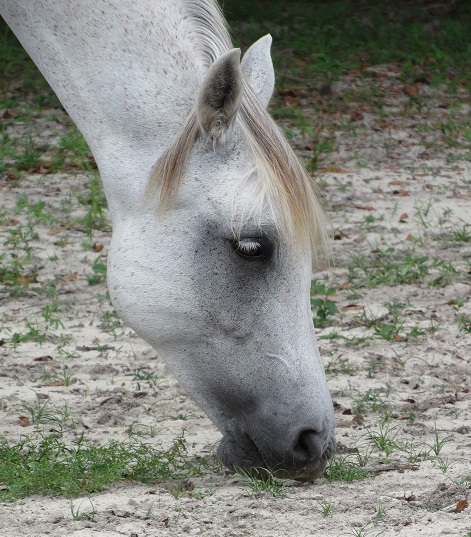Request manure test
Contact the practice to discuss whether your horse’s symptoms qualify for a manure test. Then complete the digital registration form and submit the manure. Click here for the form.
Manure testing sand sediment in the intestines
You can have your horse’s manure tested for the presence of sand. When you send in manure for examination, it is important that you have collected it properly. The manure should be fresh and not on a sandy surface. Also, the horse should not have stepped on it. This gives us the most reliable picture of the presence of sand in the gastrointestinal tract.
When a horse has sand in the gastrointestinal tract, it may not be excreted continuously. Which means that the examination, if negative, must be repeated.
Sand in the intestines
Horses almost always ingest sand with food. This is not a problem with very small quantities, then it is excreted with the manure.
When too much sand comes in, it will settle in the intestine and make it difficult to excrete. The peristalsis of the intestines will be obstructed.
Sand damages the lining of the intestine. The digestion and absorption of food are disturbed. It can cause diarrhea, colic, weight loss.

Some horses lick sand. This can indicate a number of things, including boredom / habit, shortage of minerals, shortage of roughage, stomach complaints, disturbed intestinal flora. Because this behavior involves risks, it is recommended that you address this issue.
Prevention
- make sure that a horse gets enough roughage so that sand can be properly drained (1.5-2% of the body weight). – do not feed a horse roughage on a sandy bottom.
- make sure that horses on a poor pasture are fed enough roughage to prevent them from eating every blade of grass (with sand).
- prevent your horse from licking sand.
Therapy
It is important to get the sand out of the intestines as quickly as possible. It is therefore important that your horse can no longer take in the sand. And that the sand is removed.
First of all, a lot of hay is important to stimulate the intestinal peristalsis. In addition, psyllium or flea seed is important to give. This forms a gel-like mass in the intestine, which takes the sand with it. It can take weeks to months for the sand to be released from the intestines.

For more information about this you can contact us by e-mail or telephone.
